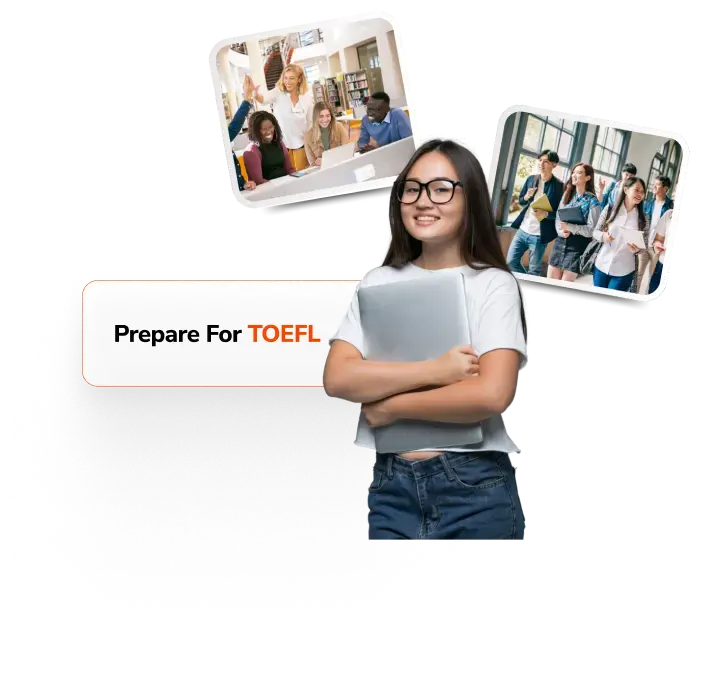TOEFL
The leading English proficiency test for academics
The TOEFL iBT test is a globally recognized English language assessment that evaluates the English-language proficiency of non-native speakers who wish to study or work in English-speaking academic and professional environments. It's designed to measure your ability to use and understand English in a real-world academic setting.



